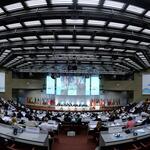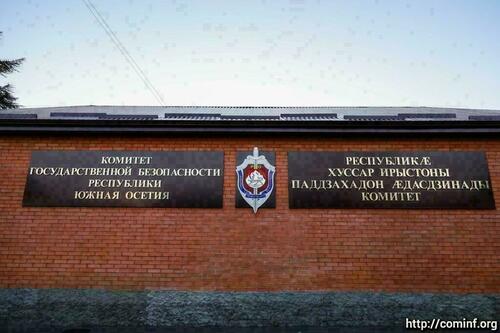The first Deputy Chairman of the Foreign Affairs Committee of the Federation Council, Vladimir Jabarov, said that Russia recognized Abkhazia and South Ossetia on the basis of the free will of the Abkhaz and South Ossetian peoples, guided by the provisions of the UN Charter.
The Committee on Political Affairs and Security of the Organization for Security and Cooperation in Europe (OSCE) Parliamentary Assembly (PA) adopted a resolution on Sunday, which included a call for Russia to cancel its decision on recognizing the independence of Abkhazia and South Ossetia, the Russian Federation is also accused of occupation "and attempts of" actual annexation "of the two countries. For this, 50 members of the national delegation voted, five opposed and nine abstained. In addition, the text includes a call for admission to the republics of international human rights defenders, including the executive structures of the OSCE.
"The attack of the regime (the then President of Georgia Mikhail) Saakashvili in August 2008, the murder of Russian peacekeepers, the preparation of a similar action against Abkhazia were the culmination of years of violent policy of Tbilisi against these small peoples," – said a member of the Russian delegation Vladimir Jabarov during the discussion of the document
A member of the Federation Council pointed out that today the two republics were established as sovereign States, creating institutions of statehood, including the executive, legislative and judicial authorities.
The head of the State Duma Committee on International Affairs, Leonid Slutsky, for his part recalled Article 1 of the UN Charter, which enshrines the right of peoples to self-determination. “For many years, the population of these territories was humiliated, subjected to various kinds of harassment in the most large-scale way,” he stressed.
The head of the Russian delegation, the Vice-Speaker of the State Duma, Peter Tolstoy, at the beginning of the 28th session of the OSCE PA, which is taking place in Luxembourg, said that Russian parliamentarians would oppose this and several other anti-Russian resolutions.
In addition, their adoption may affect the position of the Russian Federation on the final declaration of the session.







